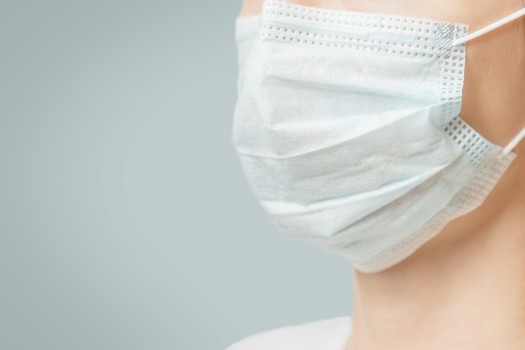New updated guidance from Public Health England (PHE) stops short of recommending GPs use PPE for all patient contacts, although it suggests this may be necessary depending on ‘local risk assessment’.
The new guidance says primary care professionals should use PPE when coming within two metres of a possible or confirmed case of coronavirus (Covid-19).
This should include a fluid-resistant (Type IIR) surgical mask; plastic apron; eye protection; and gloves, PHE said.
The document says: ‘For primary care, ambulatory care and other non-emergency outpatient settings (including hospital outpatient clinics) plastic aprons, FRSMs, eye protection and gloves should be used for any direct care of possible and confirmed cases.’
But, recognising the ‘pandemic evolution’ of the virus spread, the guidance adds: ‘Such PPE may be indicated for work in such settings regardless of case status, subject to local risk assessment.’
PHE reiterates advice for health professionals to establish, remotely via phone or other remote triage, or from a distance of two metres, whether a patient may be symptomatic.
But it adds: ‘Where the potential risk to health and social care workers cannot be established prior to face-to-face assessment or delivery of care (within two metres), the recommendation is for health and social care workers in any setting to have access to and where required wear aprons, FRSMs, eye protection and gloves.’
PHE has also updated guidance to say that some PPE, namely facemasks and eye protectors, do not need to be exchanged inbetween each patient contact, but can be used for a full session.
It says: ‘While generally considered good practice, there is no evidence to show that discarding disposable respirators, facemasks or eye protection in between each patient reduces the risk of infection transmission to the health and social care worker or the patient.’
The guidance suggests that ‘indeed, frequent handling of this equipment to discard and replace it could theoretically increase risk of exposure in high demand environments, for example by leading to increasing face touching during removal’.
‘The rationale for recommending sessional use in certain circumstances is therefore to reduce risk of inadvertent indirect transmission, as well as to facilitate delivery of efficient clinical care.’
It recommends that reception staff should keep two metres from patients, but where this is not practical, they should wear a fluid-resistant facemask.
RCGP chair Professor Martin Marshall commented: ‘This new guidance provides much of the clarity the college has called for and it is appreciated that PHE and NHS England have been receptive to our concerns.
‘It should provide GPs and their teams with much-needed reassurance around how and when to use protective equipment when they are seeing patients face to face in the best interests of their patients, their teams and themselves.’
But commenting on GP concerns with supply of PPE, he added: ‘We understand that initial stocks of PPE have been getting to GP practices, we now need to ensure that this supply is sustained throughout the pandemic, that practices start receiving new equipment recommended in the guidance such as eye protection soon, and that effective mechanisms are in place for practices to request emergency supplies, should they need them.’
BMA chair of council Dr Chaand Nagpaul said: ‘Although PHE has produced updated guidance, what fundamentally matters is that doctors and healthcare workers get the adequate and appropriate supplies of PPE on the frontline. Without these supplies there is continued unacceptable danger to the health and lives of healthcare workers and their patients.’
The BMA has warned that without adequate protection, GPs and hospital doctors ‘will die’ from Covid-19.
Dr Nagpaul said: ‘It is four days since the minister Robert Jenrick gave the assurance that no frontline staff should be working without the right protective equipment. Yet this week the BMA has received concerns from doctors in over 30 hospital trusts about inadequate PPE supplies and GPs across England who are yet to receive eye protection.’
Pulse October survey
Take our July 2025 survey to potentially win £1.000 worth of tokens













